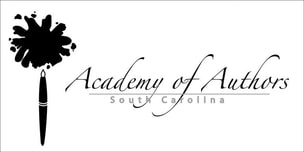Henry Timrod
Poet and essayist Henry Timrod was born on December 8, 1828, in Charleston, South Carolina, the only son of a bookbinder, William Henry Timrod, and his wife, Thyrza Prince. Timrod attended the prestigious Classical School, where he befriended his lifelong ally and fellow poet Paul Hamilton Hayne. As a young man, Timrod enjoyed solitude, nature, and the contemplation of romantic love and death. When scant resources precluded his graduation from the University of Georgia, Timrod returned to Charleston in 1846 to study law with James L. Petigru. However, as one contemporary put it, Timrod “was too wholly a poet” to find the regimen compatible. Until the outbreak of the Civil War, he tutored the children of Lowcountry planters while publishing his poetry and essays in Russell’s Magazine (which he helped to found in 1857 with Hayne), the Southern Literary Messenger, and the Charleston newspapers. Harper’s magazine hailed “the true poetical genius” of Timrod’s Poems (1860), the only collection published in his lifetime.
Although Timrod opposed secession, the opening of the Confederate Congress in February 1861 elicited from him the exultant “Ethnogenesis,” which prophesied the world made over in the image of a utopian South free “from want and crime.” But as the war dragged on, Timrod’s poems—“The Cotton Boll” (1861), “Carolina” (1862), “Charleston” (1862), “Christmas” (1862), “The Unknown Dead” (1863), and the postwar “Ode” (1866)—turned from ardor to apprehension and gloom, earning for him the sobriquet “Poet Laureate of the Confederacy.”
Timrod enlisted in the Confederate service several times, but his chronic tuberculosis led to repeated discharges. In the spring of 1862, as a war correspondent for the Charleston Mercury, Timrod witnessed the retreat of the Confederate army from Shiloh. Overwhelmed by the horror, he returned home and in January 1864 assumed the editorship of the South Carolinian, a daily newspaper published in Columbia. Henry Timrod died from tubercular hemorrhages on October 7, 1867, and was buried in the cemetery at Trinity Episcopal Cathedral in Columbia. In 1911 the South Carolina General Assembly adopted Timrod’s “Carolina” as the state song; he was inducted into the South Carolina Academy of Authors in 1992.
-Written by Elizabeth Robeson
Although Timrod opposed secession, the opening of the Confederate Congress in February 1861 elicited from him the exultant “Ethnogenesis,” which prophesied the world made over in the image of a utopian South free “from want and crime.” But as the war dragged on, Timrod’s poems—“The Cotton Boll” (1861), “Carolina” (1862), “Charleston” (1862), “Christmas” (1862), “The Unknown Dead” (1863), and the postwar “Ode” (1866)—turned from ardor to apprehension and gloom, earning for him the sobriquet “Poet Laureate of the Confederacy.”
Timrod enlisted in the Confederate service several times, but his chronic tuberculosis led to repeated discharges. In the spring of 1862, as a war correspondent for the Charleston Mercury, Timrod witnessed the retreat of the Confederate army from Shiloh. Overwhelmed by the horror, he returned home and in January 1864 assumed the editorship of the South Carolinian, a daily newspaper published in Columbia. Henry Timrod died from tubercular hemorrhages on October 7, 1867, and was buried in the cemetery at Trinity Episcopal Cathedral in Columbia. In 1911 the South Carolina General Assembly adopted Timrod’s “Carolina” as the state song; he was inducted into the South Carolina Academy of Authors in 1992.
-Written by Elizabeth Robeson
